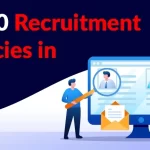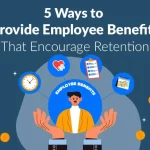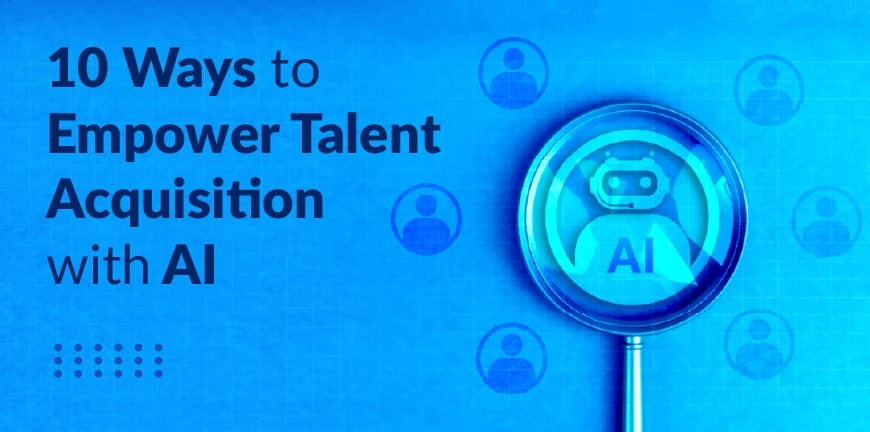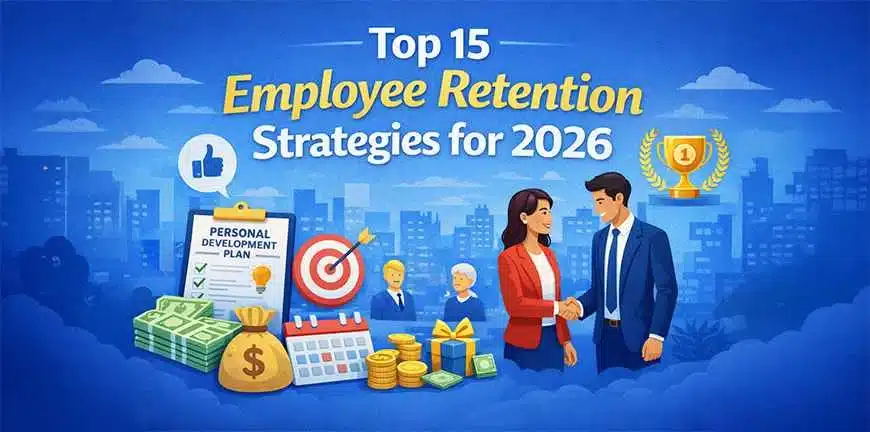
Top 10 Recruitment Agencies in India
01/02/2025
5 Ways to Provide Employee Benefits That Encourage Retention
04/02/2025Attracting and engaging top talent has become one of the most challenging tasks, especially in today’s competitive labour market. But AI (Artificial Intelligence) has helped transform the face of talent acquisition making it a lot more efficient and easier. The unbelievable capability of AI has executives in the HR and talent acquisition teams looking forward to unlocking the opportunities it has to offer. Let’s take a look at how AI can transform the talent acquisition process.
10 Ways AI Can Transform Talent Acquisition
1. Matching Candidates with the Right Jobs
Matching candidates with jobs that are relevant to their skills isn’t easy via manual processes. AI uses algorithms that can connect candidates with suitable job roles based on their skills, experiences and other criteria. Not only does this help candidates find roles that suit them best but also enables employers to attract the right pool of candidates for the open roles.
2. Integration of AI in Sourcing Tools
Sourcing tools make use of AI to scan various platforms to identify candidates to seek candidates who may or may not be looking for a role but have the right skills. How is this useful for companies? Companies get to approach these candidates with better job propositions and engage them, for any upcoming role in the future. By gathering a talent pool that has both active and passive candidates, it’s easier for companies to fill niche roles and increase the likelihood of securing top talent.
3. AI Screening Ensures Inclusive Recruitment.
AI can very easily evaluate resumes and applications through an initial filtering process and sort out the most promising candidates for their roles. This not only speeds up the recruitment process dramatically but also ensures a fair selection of candidates as it emphasizes skills over qualifications over other elements that are not a priority. Additionally, it also reduces the burden on recruiters.
4. Predict Future Workforce Needs through Data Analytics.
With the use of artificial intelligence, recruiters can anticipate and prepare for future talent needs. The data generated by analytics helps businesses understand their talent needs and prepare for a workforce that is ready to work and adapt to future industry changes. Additionally, companies can also keep their businesses afloat and run their operations as planned without having to worry about talent requirements as they already would have a talent pipeline ready, thanks to predictive analytics that allows their firms to plan their hiring processes strategically and beforehand.
5. Chatbots Offering Better and Faster Responses
Engaging candidates throughout the recruitment process personally is quite a task in itself and most times recruiters fail to do this well as they are burdened with other recruitment tasks. With chatbots at our disposal, handling queries by potential candidates and guiding them becomes a lot easier during the recruitment process. Chatbots are not just used for FAQs but also take up the role of scheduling interviews with candidates. Not only does this help improve the candidate experience but also takes the load off the recruiter.
6. Offer Personalized Job Recommendations.
Job searching is one of the most tedious tasks for candidates as finding a role that best suits their profile, skills and experience isn’t easy. AI systems provide candidates with job recommendations that are tailored to their profiles based on factors such as in-depth profile analysis, tracking behaviours and more. While this is great for candidates, it’s also ideal for employers as it helps them attract applicants whose profiles and skills are relevant to their job role.
7. Video interview Assessments Driving Informed Decisions
Video interviews have become extremely common these days, and thanks to AI, recruiters can now analyse video interviews with the help of a few platforms. From speech patterns to facial expressions and body language, AI can catch cues that may be missed by the human eye during a physical interview. This helps recruiters make better decisions and hire the most relevant candidates for the role. However, it’s essential to remember that this could only be useful to assess candidates for a few roles not all of them. A Human touch is most definitely necessary at times during interviews.
8. Automating the Onboarding Process
AI streamlines the routine tasks involved in the onboarding process, simplifying smoother integration for new hires into their roles. Some of the tasks that can be automated are scheduling of training the new hires regarding company culture and policies, paperwork completion, and workstation setup. With these tasks out of the way, recruiters can focus on personally being there for the new hires and helping them settle in the new workplace. This way the new hires feel more welcomed and valued right from the start and integrate better into the company culture.
9. Enhance Referral Programs through AI.
Employee referrals bring in some of the best, most reliable candidates and employee referral programs are considered as invaluable in the talent acquisition process. AI tracking tools can further help reap the best out of these programs by offering organizations insights into how the referral programs are working. When the tools spot a successful referral, they notify you and you can further design incentives that align with the talent acquisition goals.
10. Anticipate Employee Retention Rates.
There are AI tools that can predict which employees are likely to leave the organization. How? They analyse a range of data like job satisfaction levels, employee engagement metrics, daily work patterns and more. The output of this analysis helps figure out signs of disengagement. With these insights, companies can intervene at the right time and either stop the employee from leaving or gather feedback that could help them while making future hires. This might involve offering specific career development programs, enhancing work conditions or providing them with the right work-life balance schedules.
Future of AI in Talent Acquisition
AI is completely run by data. The more the data, the better the AI capabilities. AI essentially analyses large amounts of data and identifies patterns that may go unnoticed by human beings. So, with AI by their side recruiters can anticipate which skills and qualifications will be valuable in the future, and further move on to source, find and engage candidates who either have the potential or the skills to fit into the role.
Contact Us For Business Enquiry

Rajkumar Shanmugam
Rajkumar Shanmugam is the Head of HR at ALP Consulting, bringing over 19 years of comprehensive HR leadership experience across India and international markets. His expertise spans talent acquisition, employee relations, performance management, compliance, and HR transformation. Rajkumar has a proven track record of driving people-centric initiatives, enhancing workplace culture, and aligning HR strategy with business goals. With extensive experience in US staffing operations and global mobility, he continues to lead organizational excellence through innovation and employee engagement.




